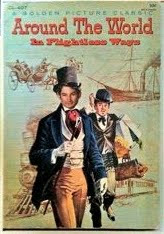Understandably, the push to become independent in the 1980s was strong. The protests in Latvia, Lithuania, and Estonia played a large part in the downfall of the Soviet regime. That downfall may have happened anyway but when people in those countries formed a human chain on the fiftieth anniversary of the Hitler-Stalin pact, it was a clear sign the people power was on the rise. As the number of people that started protesting at the end of 1990 grew, it became clear that the Soviets didn't have the power to subdue them. When Latvia, Lithuania and Estonia declared their independence at the start of 1991, it was a small but important step in the end of the Soviet regime. The Museum of Barricades of 1991 tells what happened in those few months. After seeing it I wandered around 'dome square', the cobbled area outside the Dome Cathedral. Today there are tour buses and cafes occupying the square. It was amazing to think that in the same place twenty years ago battles were being fought and several people were killed in skirmishes between protesters and soldiers.
Friday, October 8, 2010
HIstory
I've visited a few museums here to learn about Latvia's history. It's much like Estonia's in that it has been subject to continual invasions over the centuries by Germany, Poland, Sweden, and Russia and had a brief phase of independence in the 1920s and 30s after the fall of Tsarist Russia. In 1939 it was once again occupied by Russia when Stalin and Hitler made a pact to carve up eastern Europe between them. That only lasted a couple of years before Nazi Germany seized the Baltic countries from the Soviets. My impression is that the Nazi occupation was worse in Latvia than it was in Estonia, partly because Latvia had (though I'm not sure on this) a larger Jewish population, tens of thousands of whom were killed in the Nazi death camps, either ones in Poland or in camps set up in Latvia. After the war, the Soviets took over again and thousands more Latvians were exiled to their death camps (and they were death camps, not labour camps in which a lot people just happened to die). In one big purge in March 1949, over 40,000 Latvians were exiled to Siberia.
Subscribe to:
Post Comments (Atom)


I still remember the old Trots (and young trots for that matter) saying how the USSR had been the great just society and that capitalism would be a disaster. In many respects the transition was handled very badly. But given the hopelessness of the places under Communism it's hard to argue twenty years later that the fall of the USSR was a bad thing.
ReplyDeleteI doubt that it was mostly down to grassroots opposition; more te defeat in the cold war, which was due to not being able to keep pace with the US in the arms race and the US backed mujahaddin defeating the Red Army in Afghanistan. Something tells me the US aren't quite as proud of the latter nowadays.
Yes, the arms race in the cold war was key factor in brining down the Soviet system. So was that system's inability to provide the material needs of its population. I think people power was the tipping point though - without it, the system may have dragged on a few more decades or become like North Korea today or become something worse: a brutal totalitarian regime without even the ideological impetus of communism.
ReplyDeletePS who or what are 'the old Trots'?
A fantastic recent book on the Cold War-John Lewis Gaddis, really gives a clear understanding on its rise and fall. He's a liberal academic, but I was surprised to read his comments re the significance of Reagan's refusal to just go along with the accepted wisdom of the nuclear balance, and the implications his "Star Wars" concept had on Russion thinking.
ReplyDeleteThe Trotskyites at University in our early days studying politics. There was one chap in an international relations paper I did who turned up with a CCCP t-shirt every day and spent forever telling us that the US was a "society in decline". As it turned out the Soviet Union had vanished within a year and America went on to have nearly two decades of substantial economic growth and a falling crime rate, but then we're all millionaires in hindsight.
ReplyDeleteStar Wars is interesting as it always seemed to me even at the time that the prgramme was a bit of a fantasy, in that it would be impossible to create a perfect missile shield, and yet as Jinx says scared the Soviets rather a lot.
I suppose the generation of Soviet leaders for one reason or another just didn't have the stomach to become repressers of the scale of Stalin or the present day North Koreans, otherwise "people power" would have been met with tanks as in Hungary 1956, the Prague Spring in '68 or or Tianamen Sq in '89.
BTW have become involved in something of a public debate on free speech - please weigh in for or against here:
http://ukhumanrightsblog.com/2010/10/06/the-stig-revealed-why-and-does-it-matter/comment-page-1/#comment-1022